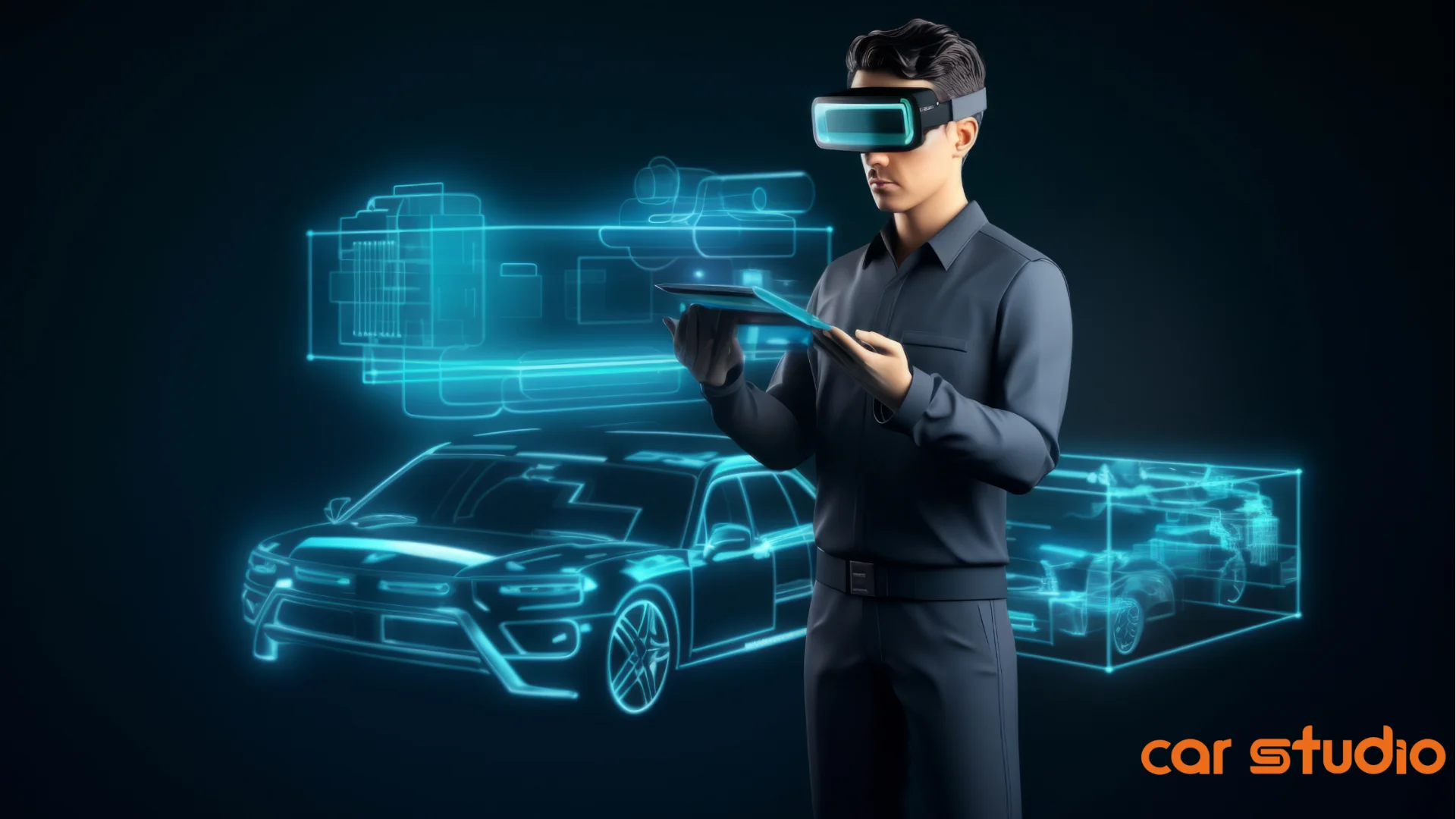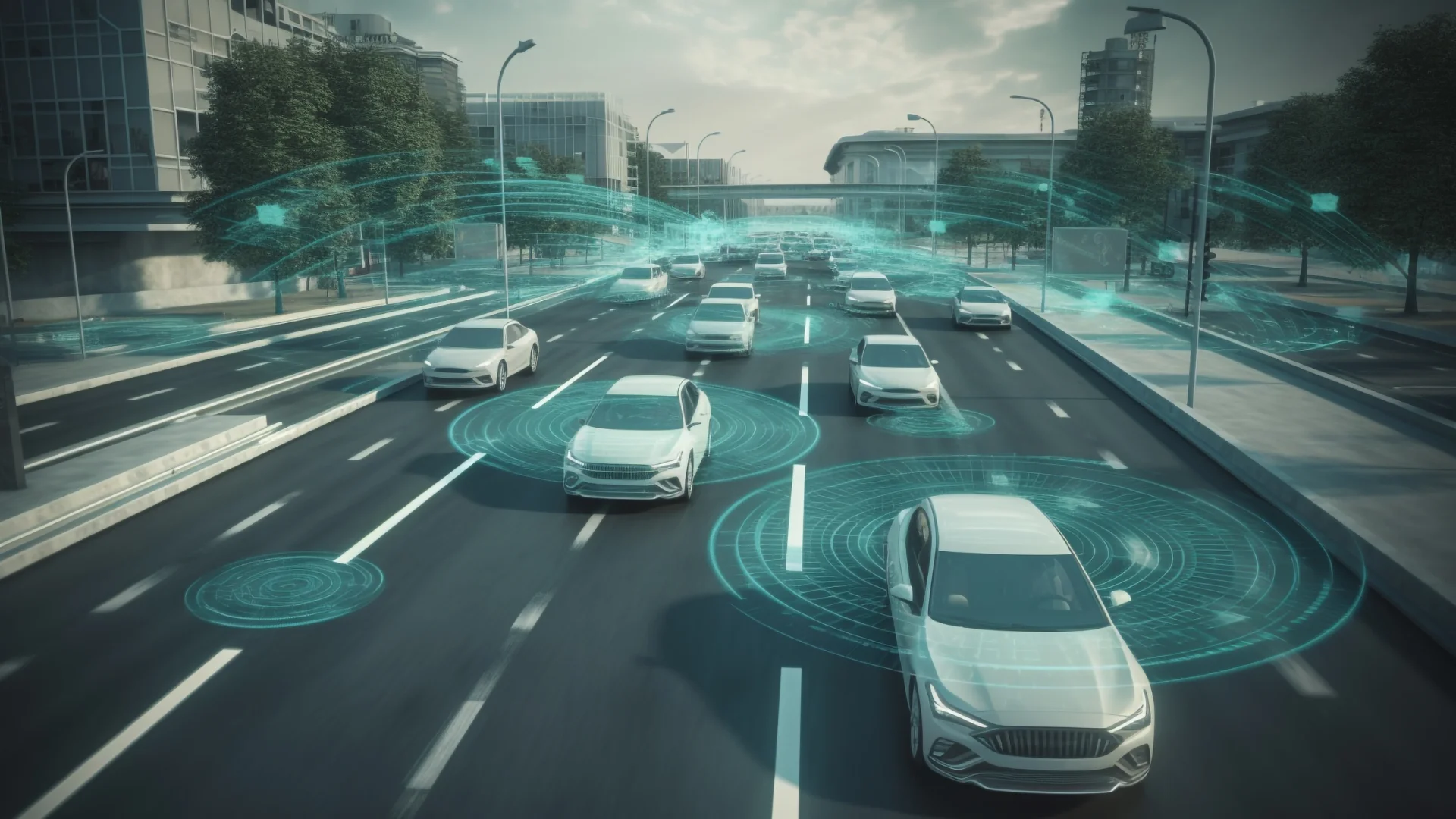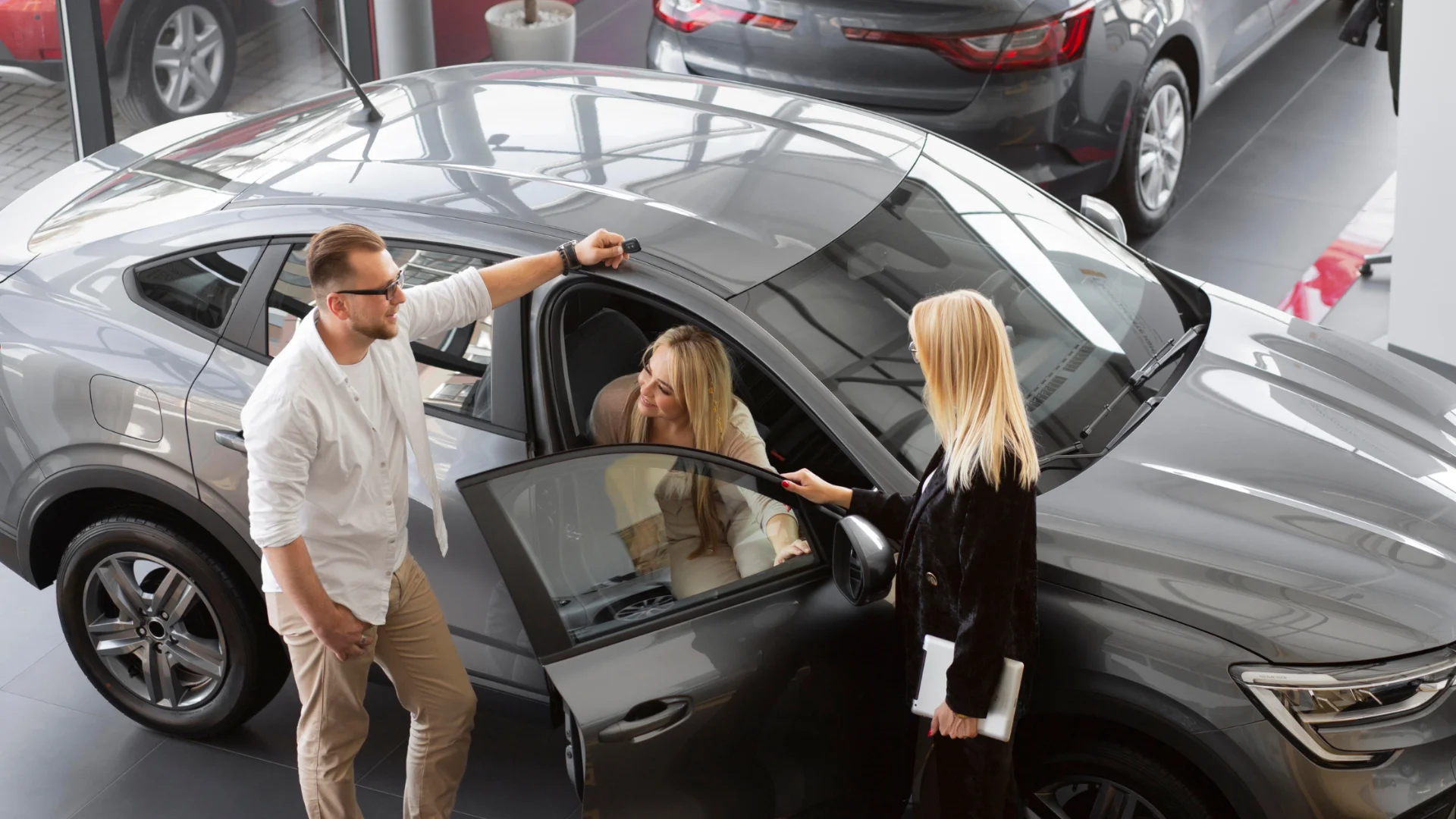
Smarter Selling: AI Marketing Automation Trends for Car
Smarter Selling: AI Marketing Automation Trends for Car Dealerships in 2025
The AI Revolution in Car Sales
The automotive industry has always been quick to adapt to new technologies from assembly lines to electric powertrains. But by 2025, a different kind of revolution is shaping the car sales landscape: AI-driven marketing automation. Car dealerships no longer rely solely on walk-in customers or newspaper ads; instead, they are embracing intelligent platforms that understand buyer behavior, personalize engagement, and streamline sales processes.
At the forefront of this change are AI-powered solutions like Car Studio AI, which not only optimize how vehicles are marketed online but also elevate customer experiences to match the expectations of today’s digital-first consumer. This is not just about keeping up it’s about setting new benchmarks for automotive retail.
How AI Transforms Car Dealership Marketing
1. AI-Driven Customer Insights and Personalization
For decades, dealerships relied on gut feeling and broad advertising to attract buyers. Now, AI can analyze vast datasets in real time, unlocking insights about what buyers want, how they shop, and which vehicles resonate with them most.
Predictive Analytics: Machine learning algorithms can forecast which customers are most likely to purchase, when they’ll be ready, and even what financing options may appeal to them.
Tailored Recommendations: Much like Netflix recommends movies, AI suggests vehicles that align with a buyer’s search history, browsing behavior, and past interactions.
This level of personalization drastically improves conversion rates. Imagine a customer logging onto your dealership’s site and immediately seeing a car that matches not only their budget but also their lifestyle AI makes that possible.
(For a deeper look at how photography influences these decisions, Car Studio AI has explored the science of how car photos trigger buying decisions, showing how visuals and AI insights work hand in hand.)
2. Enhanced Digital Showrooms and Virtual Reality
A major challenge for dealerships is that customers no longer need to step into a physical showroom to feel confident about a purchase. Digital showrooms, powered by AI, replicate and even improve the in-store experience online.

Virtual Test Drives: Using VR and AI-powered simulations, customers can “drive” a car from their living room, exploring performance, handling, and interior comfort.
Interactive Features: From customizing paint colors to previewing how a car looks in different environments, these tools increase engagement and reduce decision hesitation.
This not only shortens the sales cycle but also broadens reach, enabling dealerships to connect with out-of-town buyers who may never physically visit the showroom.
3. Streamlined Operations and Inventory Management
Behind the scenes, AI doesn’t just help with marketing it makes dealership operations more efficient.
Automated Inventory Updates: Real-time sales data ensures the website and CRM always display accurate stock.
Forecasting & Supply Chain Integration: AI predicts demand trends, helping avoid overstock of slow sellers and shortages of popular models.
Predictive Maintenance: Dealership-owned demo or rental vehicles can be proactively maintained thanks to AI systems that anticipate issues before they become costly repairs.
The result? Higher turnover, lower costs, and smoother sales operations.
Social Media and AI-Driven Marketing Automation
Targeted Advertising with Machine Learning
Gone are the days of blanket social ads. AI tailors campaigns with surgical precision. By analyzing behavior on platforms like Facebook, Instagram, and TikTok, AI ensures dealerships reach audiences who are already in-market.
Behavioral Targeting: Ads appear only to users who’ve shown real interest, whether by searching for specific car models or engaging with automotive content.
Dynamic Ads: Content evolves in real time—an undecided customer may see different messaging based on their previous clicks.
This makes marketing budgets stretch further, with better ROI and fewer wasted impressions.
(Dealers looking for fresh creative strategies can explore visual marketing tactics for 2025, which highlight how AI helps craft scroll-stopping ads that convert.)
Content Optimization and Engagement
Even the best ad campaigns fail without strong content. AI steps in here as well:
Automated Content Creation: From car descriptions to blog posts, AI tools generate professional, SEO-friendly text.
Engagement Analysis: Platforms track which posts resonate most and suggest adjustments, ensuring future content hits the mark.
For dealerships without large marketing teams, this means competing on equal footing with bigger players.
Overcoming AI Adoption Challenges
Of course, AI adoption isn’t without hurdles. Many dealerships worry about:

Costs – Is the investment justified?
Complexity – Will staff need extensive training?
Scalability – Will tools grow with the dealership?
The good news is that platforms like Car Studio AI are designed to be user-friendly and scalable. They work out of the box, require minimal technical knowledge, and expand as your dealership grows.
(For example, some dealers even experiment with AI in creative areas like free AI car modification tools, which show how playful yet powerful these systems can be in boosting customer engagement.)
Real-World Impact: What Success Looks Like
When dealerships adopt AI-driven marketing automation, several measurable benefits emerge:
Higher Lead-to-Sale Conversion Rates – Thanks to personalization.
Shorter Sales Cycles – Virtual tools reduce decision-making time.
Improved Customer Retention – AI helps nurture relationships post-sale.
Operational Efficiency – Inventory, maintenance, and marketing all run smoother.
These outcomes make clear that AI is not just a trend it’s an essential competitive advantage.
Conclusion: Embracing the Future
The direction for 2025 and beyond is unmistakable: automation, personalization, and efficiency. Dealerships that embrace AI marketing automation will not only survive the industry shift but thrive in it.
Car Studio AI, with its comprehensive suite of solutions, is leading this transformation helping dealerships optimize listings, automate social campaigns, and create customer experiences that rival (and often exceed) the traditional showroom.
If you’re ready to future-proof your dealership, the time to act is now. Embrace AI, leverage automation, and take your place at the forefront of the automotive marketing revolution.
(For a more detailed exploration, Car Studio AI also provides a forward-looking analysis on AI-driven marketing automation in dealerships, tying together strategy, technology, and customer engagement.)
Frequently Asked Questions (FAQ)
1. Why should car dealerships invest in AI and marketing automation?
Car dealerships operate in an increasingly competitive environment where buyers do most of their research online before ever setting foot in a showroom. Traditional advertising methods such as print or generic online listings no longer deliver the same results they once did. AI and marketing automation give dealerships the ability to reach the right buyer, with the right message, at the right time. Instead of spending large sums on broad, untargeted campaigns, dealerships can invest in smarter, data-driven strategies that yield higher returns.
AI-powered platforms analyze customer behavior, purchase intent, and market trends in real time. This means dealerships can launch campaigns that are highly personalized offering vehicles, financing options, or promotions that align perfectly with each customer’s needs. In practice, this doesn’t just increase sales it also builds stronger customer loyalty by showing buyers that the dealership understands them as individuals, not just numbers.
2. Is AI marketing automation only suitable for large dealerships with big budgets?

This is a common misconception. While it’s true that many early adopters were larger dealerships with resources to experiment, the landscape has shifted dramatically. Today’s AI platforms are scalable and cost-effective, meaning small and mid-sized dealerships can access the same tools once reserved for large players. In fact, smaller dealerships often benefit even more because AI allows them to “punch above their weight” and compete with larger groups.
Solutions like Car Studio AI are designed with flexibility in mind. Dealerships can start small perhaps with AI-enhanced photos or automated inventory updates and scale up as they see results. This approach keeps costs manageable while ensuring the dealership can grow at its own pace. For independent or family-owned dealerships, this can be the difference between struggling to keep up with digital transformation and thriving in the new era of car sales.
3. How does AI improve online car listings and digital showrooms?
A car listing is often the first impression a buyer gets of a dealership. Poor-quality photos or generic descriptions can instantly turn customers away. AI tools enhance this process by automatically editing car images, removing backgrounds, anonymizing license plates, and even suggesting which angles perform best online. When paired with engaging AI-written descriptions, every listing becomes a polished, professional showcase of the vehicle.
Digital showrooms take this one step further. With AI, dealerships can offer interactive experiences such as 360° car views, virtual test drives, and customization tools. Buyers can explore vehicles from their homes changing colors, comparing trims, and visualizing how a car fits into their lifestyle. Not only does this create excitement, but it also builds trust. When customers arrive at the dealership, they are already well-informed and closer to making a purchase decision, dramatically shortening the sales cycle.
4. What role does AI play in social media and digital advertising?
Social media has become one of the most powerful sales channels for car dealerships, but it’s also one of the most competitive. AI gives dealerships an edge by analyzing user data across platforms like Facebook, Instagram, and TikTok, and then automatically adjusting ad campaigns to match audience behaviors. For example, if a potential buyer has been researching compact SUVs, AI ensures that they see dealership ads highlighting the most relevant models in stock.
Additionally, AI doesn’t just stop at targeting it also optimizes ad creative. Dynamic ads adjust messaging, visuals, and even offers in real time based on how users interact. This level of personalization ensures higher engagement, better conversion rates, and more efficient use of marketing budgets. For dealerships, the end result is more leads generated at a lower cost per acquisition a clear win in today’s highly competitive market.
5. Is adopting AI complicated for dealership staff and management?
One of the biggest fears around adopting new technology is that it will be too complex or time-consuming for staff to manage. While this concern was valid in the early days of AI, modern platforms are intentionally designed to be user-friendly and intuitive. Many solutions require minimal training and can be integrated directly into existing CRM or inventory management systems.
For sales teams, this means less time spent on repetitive tasks such as updating listings or manually tracking leads and more time focusing on building customer relationships. For managers, it means clearer insights and better forecasting without the need to hire dedicated technical staff. Ultimately, AI should feel like an assistant that works in the background, not an extra burden for the team.
6. What’s the future of AI in car dealerships beyond 2025?
Looking ahead, AI’s role in the automotive retail sector is only going to expand. In the near future, we can expect AI-driven negotiation tools that help both buyers and sales staff reach fair deals more efficiently. Voice assistants may guide customers through the entire car shopping process, from browsing models to scheduling service appointments. AI will also become more deeply integrated into after-sales support, predicting service needs and automatically scheduling maintenance reminders.
By 2030, AI could handle most of the transactional and operational aspects of selling cars, allowing human staff to focus exclusively on customer relationships and trust-building. Dealerships that embrace this transition early will be far better positioned to stay ahead of consumer expectations. In other words, adopting AI today isn’t just about gaining a short-term advantage it’s about preparing for the next decade of automotive retail.
